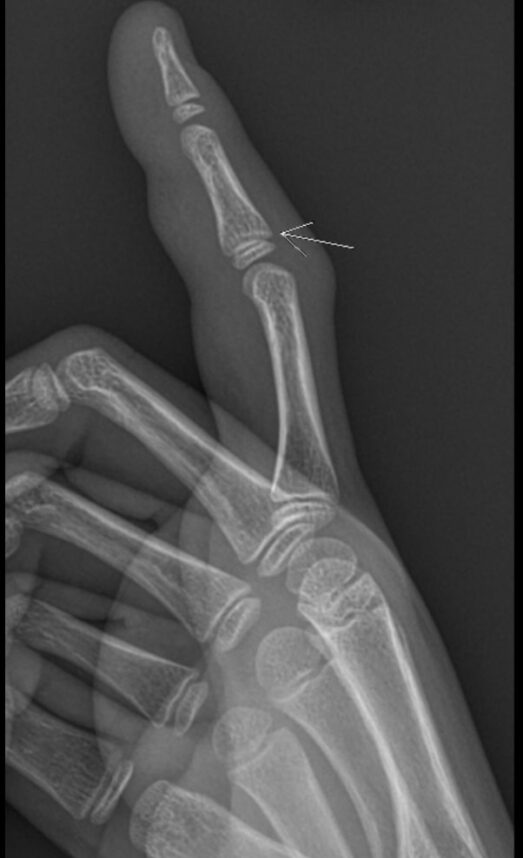
When we think about genetic diseases, the ones that usually come to mind are cystic fibrosis, Fragile X and, of course, Tay-Sachs disease. One disease that many people are not aware of is spinal muscular atrophy, also known as SMA. But SMA is more common than you’d imagine. One-in-40 to one-in-60 people are carriers for the disease, and it affects one in 6,000 to 10,000 babies. In fact, the disease is so prevalent that the American College of Obstetricians and Gynecologists (ACOG), the professional association of OB/GYN physicians in the U.S., recommends carrier screening of SMA for all women who are planning on being pregnant. As August is Spinal Muscular Atrophy awareness month, we talked to Estie Rose, a genetic counselor with JScreen, a nonprofit genetic testing initiative out of Emory University, about this debilitating, usually fatal condition.
What is SMA?
Spinal muscular atrophy is a genetic disease in which there is a lack of communication between the nerves and the muscles so that the nerves are not telling the muscles how to work properly. Most typically, you’ll see issues in the lungs so those with SMA will have trouble breathing, as the nerves aren’t telling the lungs to breathe. There is also be a weakened cough, scoliosis, a progressive loss of motor facilities and trouble eating and speaking. Basically, the muscles all over the body are not doing their job, so individuals with SMA are very sick and get progressively worse.
How fatal is it?
The median age of death is 10 ½ months without treatment. Those with a less severe form of SMA can live a little longer with ventilatory support, airway clearance, nutritional support, physical therapy and adaptive equipment and gastrostomy tubes.
Do they perform newborn screening for SMA?
Newborn screening for the disease is available in 47 states, which can detect about 95% of the cases of babies born with SMA.
Are there treatments?
There are some new treatments that have been effective in managing SMA. The most common is a gene therapy, FDA approved in 2019. As individuals with SMA are missing a gene that is vital in the production of a protein involved in nerve and muscle control, working copies of this gene are given intravenously via viral vector. With the working gene now introduced into the body, the necessary protein is produced typically allowing the child to breathe and eat on their own, and possibly sit and stand and maybe even walk. While this gene therapy is effective, Rose cautions, “It’s not a cure. These kids still have SMA but at least they’re creating some of this protein in their bodies that can help with some of these symptoms.”
For those not using gene therapy, there are two other medications that can help slow down the progression of the disease. FDA approved in 2016, Sprinraza is a lumbar puncture treatment administered four times in the first 60 days, followed by one every four months. Another, Evrysdi, FDA-approved in 2020, is an oral treatment taken daily.
With available treatments, does SMA seem to be not as serious a problem?
Again, it is important to remember that these treatments do not cure SMA, and the child is in for a difficult road ahead. Rose reiterates, “While you’re greatly improving the quality of life, these kids they still have SMA and they’re still dealing with a chronic illness.” These treatments are also expensive (the gene therapy is $2.125 million for the one dose, although most cases are covered by insurance). And we don’t know the long term prognosis yet with these treatments, as they are so new and only babies born in the last few years have had the benefit of the therapies.
“Parents are very lucky that they have these treatments available, but I think it’s crucial for people to get tested before pregnancy so that treatment is not their only option.“ – Estie Rose, JScreen
All of this, Rose emphasizes, makes carrier screening before pregnancy absolutely crucial. “Parents are very lucky that they have these treatments available, but I think it’s crucial for people to get tested before pregnancy so that treatment is not their only option. Before pregnancy, they have other options like prenatal diagnosis. They might use assisted reproductive technologies like IVF. They might decide to use an egg or sperm donor. They might decide to adopt. They just have so many more options if they do the screening early.”
Do direct-to-consumer tests like 23andMe screen for SMA?
Actually, they don’t. Rose explains that these services use a form of testing called genotyping, which does not look at the entire gene and therefore would not detect these kinds of mutations that cause SMA. So when having carrier screening, be sure that your screening panel includes SMA.
Having a genetic counselor help you through this process is also vital to help you make decisions on your family planning. And the earlier you have carrier screening, the more options you’ll have to welcome a healthy baby.
For more information about genetic diseases and where you can get carrier screening, visit GeneTestNow.com.


































